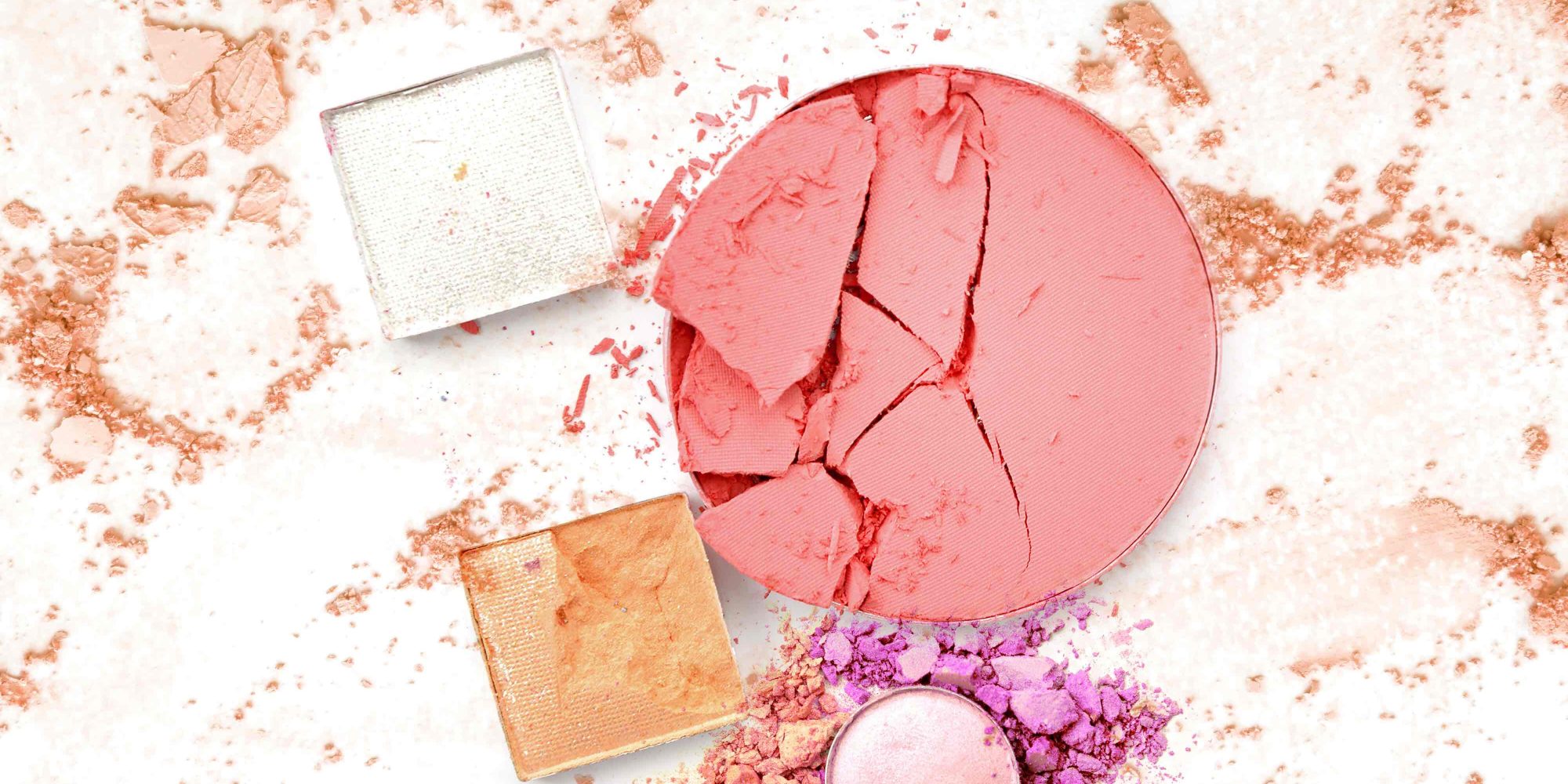
Indie Beauty Brand Founders Share Production Nightmares And How They Handled Them
In this edition of Beauty Independent’s ongoing series posing questions to beauty entrepreneurs, we ask brand 13 founders and executives: What’s a production issue you encountered, and how did you handle it?
- Andrew Glass Founder, Non Gender Specific
During one of our first large production runs, we had 5,000 glass droppers arrive broken, and I have to admit I panicked at first. Timing was extremely tight for delivery, and I didn't think there was a chance to fix the issue.
But, after taking a few moments to calm down, I got on the phone with our supplier and worked out a solution. Looking back on the situation, I've learned that it's never going to be the end of the world, so don't panic! There will always be a solution as long as you keep a level head.
- Shayan Sadrolashrafi Co-Founder, Wakse
During one of our very first orders of 5,000 jars, we had a huge issue with our labels bubbling. At first, we panicked and had to find a very quick solution. We convinced our jar supplier to send replacements along with printed labels, and my co-founder and I hand-labeled all 5,000 replacement jars over a three-day period.
- Dominique Nemery Founder, Amatera Cosmetics
We ordered our glass bottles on time in Italy, but, due to a production issue with the manufacturer, we received them later than planned. Luckily, we found a new production date with our producer to tackle this problem and mitigate the impact on the delivery to avoid the tricky situation of being out of stock.
My experience with leading international companies is an advantage, but, unfortunately, we can’t control everything, so we decided on a communication process that will be used if this happens again since transparency is key for us.
- Eugene He Founder, Ceramiracle
Hah! What production issues have I not yet encountered? The worst was when a supplier delayed our ingredients by three months right in the midst of our growth spurt.
There was nothing we could do but to talk to our distributors and work out a marketing plan to shift focus on other products. This lesson made me realize the importance of being vertically integrated, which is something we are working on as the brand grows.
- Kim Peirce Founder, Babe Australia
The biggest challenge we’ve experienced in production is forecasting throughput, especially when unexpected, large orders come in. As a growing business, you need to ensure you have enough stock being pushed through the machines, but not so much that you are holding inventory, and it’s an ongoing learning curve the more you ramp up.
A couple of years ago, we shipped all our inventory out to a large retailer to ensure they had stock, but it left us without inventory for a couple of weeks for other orders that came in, which ultimately impacted our cash flow. The lesson learned from this is in talking with all of our customers to understand their forecasts for product volume for the next quarter.
- DAVID SIMNICK CEO and Co-Founder, Soapbox
Production issues will always happen. I have yet to see a brand that has existed flawlessly in terms of production. There are so many outside factors that can cause a fluke. For us, we were experiencing order leaks a bit too frequently. It could have been from several different angles, so we had to look at how we pack out the products to how the caps are tightened on the production line.
We had to test out different solutions. We tested different tightness levels on the caps to make sure it was just tight enough so the product wouldn't leak, but also so the caps wouldn't crack. After that, we had to look at our warehouse to see how orders are packed out and making sure there was enough dunnage to protect the bottles. It's all very touch and go and trial and error, but we always have, and always will, ensure that our customer has the best experience. Period.
- Ray Shealy CEO, HaloSmile
Having a team that is scrappy and willing to drop what they are doing to help another department out is important. When we have been in these situations, everyone on the team, including myself, has dropped what they're doing and helped with production.
As we began to grow, we knew we were going to need to be more automated with our production line. Due to the small, precise doses our product requires, we did not realize the only company that could sell us the equipment we required would be in Singapore. It clearly took longer than we hoped to get the equipment in place, but our team responded, and we are now up and running and scaling production.
- PETER SCHAFRICK Founder, Schaf Skincare
Once I lock down a formula, my production issues typically surround packaging and labeling. Even the slightest inconsistencies on the packaging can present issues when applying labels correctly and evenly.
On a number of occasions, we’ve had to go back to our printer and tweak the label size to ensure a consistent and even application. There’s a big difference between testing by hand compared to using automation for 1,000 units.
Another time a bottle we were sourcing was tapered. It was because of the design and way the bottle cured. It was wider at the bottom, so the label looked very uneven from the back where the ends met, and the machine had a hard time applying the label without bubbles and seams. I had to stop the automatic label application process and apply labels myself by hand. Eventually, I found another bottle that was more precisely made consistently from one production run to the next.
- Melissa Arredondo Founder and CEO, BEAUTÉNOTIONS
I have worked in the beauty industry for over 15 years, with most of my background in brand management and product development, so I know it isn’t a matter of if a production issue is going to happen, but when. I embraced my first production issue before the brand ever launched.
The first production run for IMMACULASH 360, IMMACULASH PRIMER and LIP DIGNITÉ was delayed. We actually missed the brand launch date! We already had PR in place, so we quickly repositioned the launch of the brand to a pre-order and pushed forward.
It wasn’t how I envisioned the launch of BEAUTÉNOTIONS after years of work behind the scenes on patents, engineering and production, but that is part of being a business owner. You have to be flexible and make the most of every situation.
- Kara Soule CEO and Co-Founder, Verdant
It can be difficult to find manufacturing partners who are willing to fill the smaller, craftsman-style batches we're committed to producing given that shorter runs take more time and cost more.
In the end, it actually took us about six months and conversations with 100-plus manufacturers to find the right partners who share our attention to detail, quality standards and love for small batches. As the saying goes, "All good things come to those who wait" (and endlessly persevere).
- Christinah Nicolaisen Co-Founder, Eleni & Chris
Due to our strict QC before, during and after production, luckily, we experience very few issues in production. Our biggest challenge is speed to market and lead times for reproduction. The way we overcome this is always to have additional empty packaging on bestselling SKUs, so we can turn around production quicker to meet customer demand.
- Lourdes Gaudiano Co-Founder, Luly Gaudiano
What I wanted to do was to build a production place to be able to make bar soaps in a clean and safe environment, so I could sell them in a bigger scale and make a living out of it while I was working as a full-time mom. Little did I know that I was going to end up making a bath and body line with three products and no bar soap.
As a foreigner living in Switzerland, you already deal with a lot of difficult situations. Everything is very expensive. [There's also] the language barrier, my family living in another continent, getting everything in small quantities so that I could afford them (bottles, ingredients, flyers, stand, basically everything) and developing products that I had little experience making.
My brand has been developed by overcoming all kinds of challenges, especially emotionally, but I’ve been very lucky to come across the right people at the right time, in this case my mentor and my laboratory. My mentor helped me to understand that it was OK not to make the bar soap for now and, instead, encouraged me to look for other possibilities that were more realistic in my situation.
That’s how we ended up sourcing from a lab here in Switzerland. They have over 25 years of experience in natural cosmetics, stand for the same beliefs and ethics as I do, and I know and trust their knowledge because I’ve been a big fan of their brand for years. And the best part, they believe in us.
- Maya Crothers Founder, CIRCCELL
We have had so many. Just a fact of life in this business. In one case an entire run of our Geothermal Clay Cleanser was manufactured improperly and the product was so thick it could not come out of the vessel... literally hard as a brick. This was devastating for us. We were on back order for almost two months while we waited for our manufacturer to create a new batch for us.
We now stay much more involved during the process to make sure everything leading up to the manufacturing dates is on schedule and we pay closer attention to what is coming off the line before the run is complete. Lesson learned!
If you have a question you’d like Beauty Independent to ask beauty entrepreneurs, please send it to editor@beautyindependent.com.






Leave a Reply
You must be logged in to post a comment.